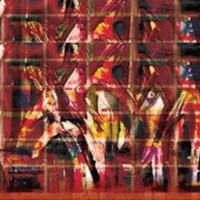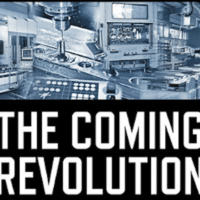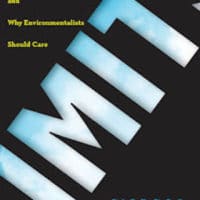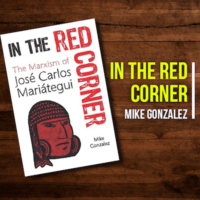-
Book Review: Revisiting Marx’s Critique of Liberalism: Rethinking Justice, Legality and Rights by Igor Shoikhedbrod
Karl Marx has a reputation for being one of the foremost critics of liberalism and the discourse of rights. In Revisiting Marx’s Critique of Liberalism, political theorist Igor Shoikhedbrod contests this simplistic assumption.
-
Is postcolonial capitalism a thing to itself? Reviewing Sanyal’s – Rethinking Capitalist Development
In all, Sanyal’s work is engaging, remarkable in its cross-disciplinarity, and fresh. Though its influence has been concentrated in Indian academia, I urge my colleagues elsewhere to give it a read. It will definitely make you think.
-
Planet of the Humans: a muddy cocktail of valid criticisms, disinformation and defeatism
The film makes numerous good points, but fails as a whole because it spreads corrosive disinformation and mistruths about wind and solar. It also utterly fails to articulate a vision of what the alternative environment movement it claims to be a clarion call for would actually look like.
-
“Humans” are not the problem: Reflections on a “useless” documentary
With nearly everyone trapped at home for the fiftieth anniversary of the first Earth Day, Michael Moore released a film that picks apart the U.S. environmental movement as it may have looked ten years ago, and then misleadingly presents it as breaking news.
-
Why “Planet of the Humans” is crap
Mostly, Planet of the Humans is just so fucking bad. So bad that its good points are useless. It does have some good points–there seem to be a lot of rock festivals in Vermont that claim, incorrectly, to be running on solar.
-
Charles Bradley: Why Is It So Hard to Make It in America?
If you got a clean heart and a clean mind and you have been abused, used, and refused—that is soul.
-
A dialectical delight
A review of Donny Gluckstein and Terry Sullivan, Hegel and Revolution (Bookmarks, 2020), £7.
-
A case study of corporate media disinformation
Corporate America’s disinformation relies on politicians, media and NGOs to implant their messaging. An essential part of combatting that messaging requires us to question our own views, as none of us are entirely immune to disinformation techniques, which have in effect become an advanced science.
-
All too relevant: Marx’s critique of rights and neoliberal human rights
Jessica Whyte’s new book, The Morals of the Market, demonstrates the kind of scholarship we all aspire to: insightful, thought-provoking, and, above all, accessible and engaging. In it, she traces the “historical and conceptual relations between human rights and neoliberalism”.
-
Re-enchanting the world: Silvia Federici on feminism and the politics of the commons
In her recent volume Re-enchanting the World: Feminism and the Politics of the Commons (PM Press, 2019), Silvia Federici fruitfully brings together feminist reflections with discussions of the commons as a possible way of overcoming capitalism.
-
Johnstone brings her moral compass to our Dantesque world
It is one of the great personal accounts of the anguished decline of our uncivilization, both a riveting eye-witness account of many of the horrors and perfidies, and a primer for students of history and all those struggling to not only dismantle the beast, but to prepare us for what follows it.
-
Shakespeare’s Tempest and Capitalism: The Storm of History
As well as being significant in terms of Shakespeare’ s own aesthetic output, The Tempest provides a vivid window into the tumultuous historical currents and contradictions of the epoch in which the great playwright lived, syphoning them into its ethereal and haunting poetry. Helen C. Scott’s excellent and timely study of the play is a book of two parts
-
The Torture Machine, Racism and Violence in Chicago
The Torture Machine, Racism and Police Violence in Chicago, by People’s Law Office and longtime National Lawyers Guild attorney Flint Taylor, is a meticulously detailed and authentic, truly appalling story of shame and disgrace to the city of Chicago, its political and police administration establishments, and numerous judges of the Cook County criminal courts; an account of dozens of cases in which black men from the South Side were sent to state prison—and a number to Death Row—on the basis of confessions extracted from them by police torture.
-
Is degrowth an alternative to capitalism?
In what follows, I will first briefly summarize the core arguments of the book, which promises to provoke important discussions on the matter of limits and subjects. Then I will reflect on the fuzziness of the primarily cultural conceptualization of capitalism, and argue that neither self-limitation nor degrowth qualifies as a mode of production, such that they could constitute an alternative to capitalism.
-
Marx and Social Justice: Ethics and Natural Law in the Critique of Political Economy reviewed by Xuanpu Zhuang
According to McCarthy, Marx rejects the view of justice in liberalism, which is limited to individual rights and fair distribution and provides a new one based on Aristotle’s definition of social justice grounded in ethics and politics.
-
The Coming Revolution: Capitalism in the 21st Century
The Coming Revolution is an impressive guide for Marxists looking for a way to approach contemporary capitalism, argues Josh Newman
-
Emissions Gap Report 2019: Executive Summary
This is the tenth edition of the United Nations Environment Programme (UNEP) Emissions Gap Report. It provides the latest assessment of scientific studies on current and estimated future greenhouse gas (GHG) emissions and compares these with the emission levels permissible for the world to progress on a least-cost pathway to achieve the goals of the Paris Agreement.
-
Green Strategy: To beat climate change, humanity needs socialism
It’s bad enough to imagine blame and scenarios of dread, as if from science fiction, but add in the presently feeble response to dire threats and we’re in a funk. If tools were available, we’d get a lift. Marc Brodine’s book Green Strategy, reviewed here, is about tools.
-
Limits: Why Malthus Was Wrong and Why Environmentalists Should Care
This short, readable and stimulating book begins with the author overturning perceived knowledge about the 18th century economist Robert Malthus.
-
In the red corner
Mike Gonzales gives a fascinating outline of the subject of his forthcoming book ‘In the red corner: the Marxism of Jose Carlos Mariátegui’, detailing the life and politics of an important Marxist who shaped the early working class movement in Peru.




















